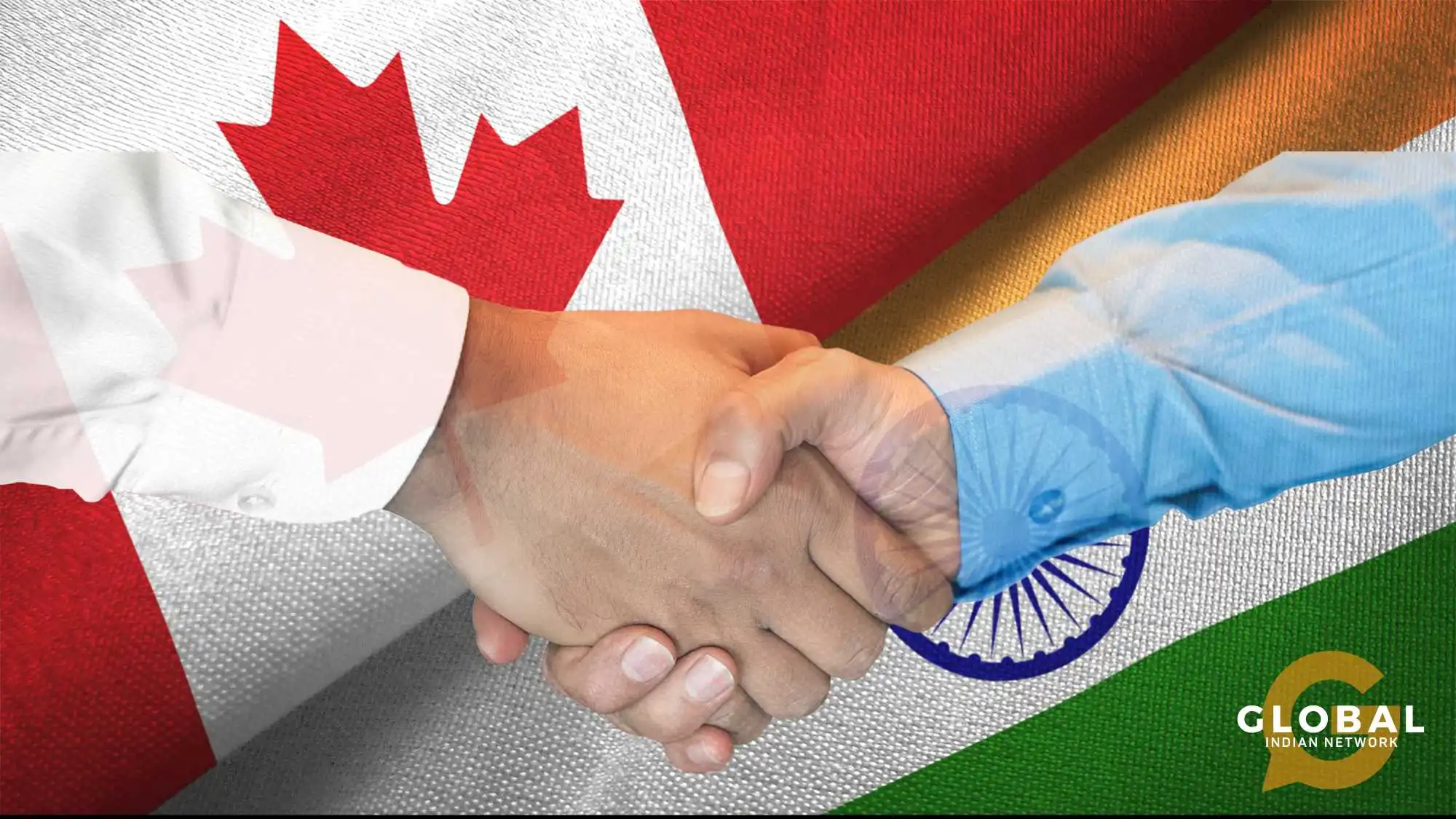India and Canada diplomatic relations have a long and storied past stretching back centuries. Starting in the late 1800s, the two countries (though India was yet to gain independence) have shared bilateral connections.
After the independence of India from the British Raj, the ties between the two countries strengthened. Relations between the two nations grew to spread over several dimensions, including education and trade. Nearly 40% of all international students in Canada are Indian.
As of 2023, the growing relations have hit a roadblock since the murder of Hardeep Singh Nijjar. A Canadian Sikh and member of the Khalistan Separatist Movement was shot dead in a parking lot in British Columbia, Canada. The Canadian government has alleged involvement of the Indian government, something that New Delhi has vehemently denied, leading to a political standoff.
Table of Contents
The Sikh Separatist Movement
The Sikh Separatist Movement, otherwise known as the Khalistan Movement, is an independence movement that calls for the creation of a separate sovereign homeland for Sikhs. Formally starting in the 1930s, British colonial rule in India was coming to an end. Sikh separatism then slowly came to fruition after the partition of India. It called for a separate ethno-religious state in Punjab and the surrounding regions of Haryana and even Pakistani Punjab.

These calls were expressed in a pamphlet simply titled Khalistan, and the movement grew in popularity. For the next few decades, the movement gained traction, culminating in armed insurgencies in the 1980s.
These armed insurgencies led Prime Minister Indira Gandhi to order Operation Blue Star. This resulted in about 10 days of fighting between Sikh militants and the military, with both sides suffering heavy losses. In retaliation to the operation, two of Gandhi’s Sikh bodyguards assassinated her.
The death of Indira Gandhi was punctuated by anti-Sikh riots. Leading to the massacre of thousands of Sikhs across the country. As many Sikhs fled abroad, sympathy and support for the Khalistan Movement began to grow in the diaspora.
The Prominence of the Sikh Separatist Movement in Canada
Many of the Sikhs and, by and large, Indians settled abroad. For members of the Khalistan Movement who settled abroad, support for the movement, particularly monetarily, continued.
The growing number and prominence of the Sikh diaspora population in the following decades put India and Canada diplomatic relations in a precarious position.
Prominent members, as well as sympathizers of the Khalistan movement, settled in Canada. Since the 2010s several Canadian ministers have maintained their stance on their recognition of one united India. However, Canada refused to extradite members of the movement to India because of a lack of wrongdoing in their view. This has, for the past few decades, strained India and Canada diplomatic relations as India views a significant portion of the movement’s members as terrorists.

The Current State of India and Canada Diplomatic Relations
The simmering tensions reached a boiling point after the murder of Hardeep Singh Nijjar in Canada in June of 2023. Canada’s Prime Minister Justin Trudeau stated that Canadian investigators were “pursuing credible allegations of a potential link” between the assassination of Nijjar and the Indian Government.
These allegations were met with fierce criticism from New Delhi, which vehemently denied them. The India and Canada diplomatic relations were further worsened when Trudeau doubled down on the claims a year later, stating that they had provided India with “irrefutable evidence” of links between the government and the killing.
Ottawa then moved to expel six members of the Indian diplomatic mission in Canada including the High Commissioner Sanjay Kumar Verma. India’s response was somewhat conflicted as an initial statement claimed that the diplomats had been recalled and not expelled but then moved to retaliate by expelling members of the Canadian High Commission.
As of right now, the relationship between the two countries is at a standoff. Canada claims that the Indian government is responsible for the assassination of a Canadian citizen on Canadian soil, while India accuses Canada of harbouring designated terrorists in its borders.
What that means for the percentage of the Canadian population made up of Indians is still an evolving matter.

Conclusion
India and Canada diplomatic relations have ebbed and flowed with time. However, the current trajectory puts the two countries on a diplomatic collision course.
As the investigation into Nijjar’s murder continues (three members, all Indian nationals of the suspected hit squad, have been arrested), a resolution doesn’t seem to be on the near horizon. However, bilateral relations in other domains outside politics seemingly seem to continue.
FAQs
Why is India important to Canada?
The bilateral trade relations make India one of Canada’s largest and most important markets and trading partners. In 2022, India ranked as Canada’s 10th largest trading partner.
Why do Indians prefer settling in Canada?
Canada is the second most popular destination for Indians after its North American neighbour, the United States. This is in part because of more favourable immigration laws and more economic opportunities.
What is India’s dependency on Canada?
India’s imports from Canada measure at about 4.5 billion dollars worth of goods. These come in a wide range of goods including aviation equipment, crude oil and fertilizers.









